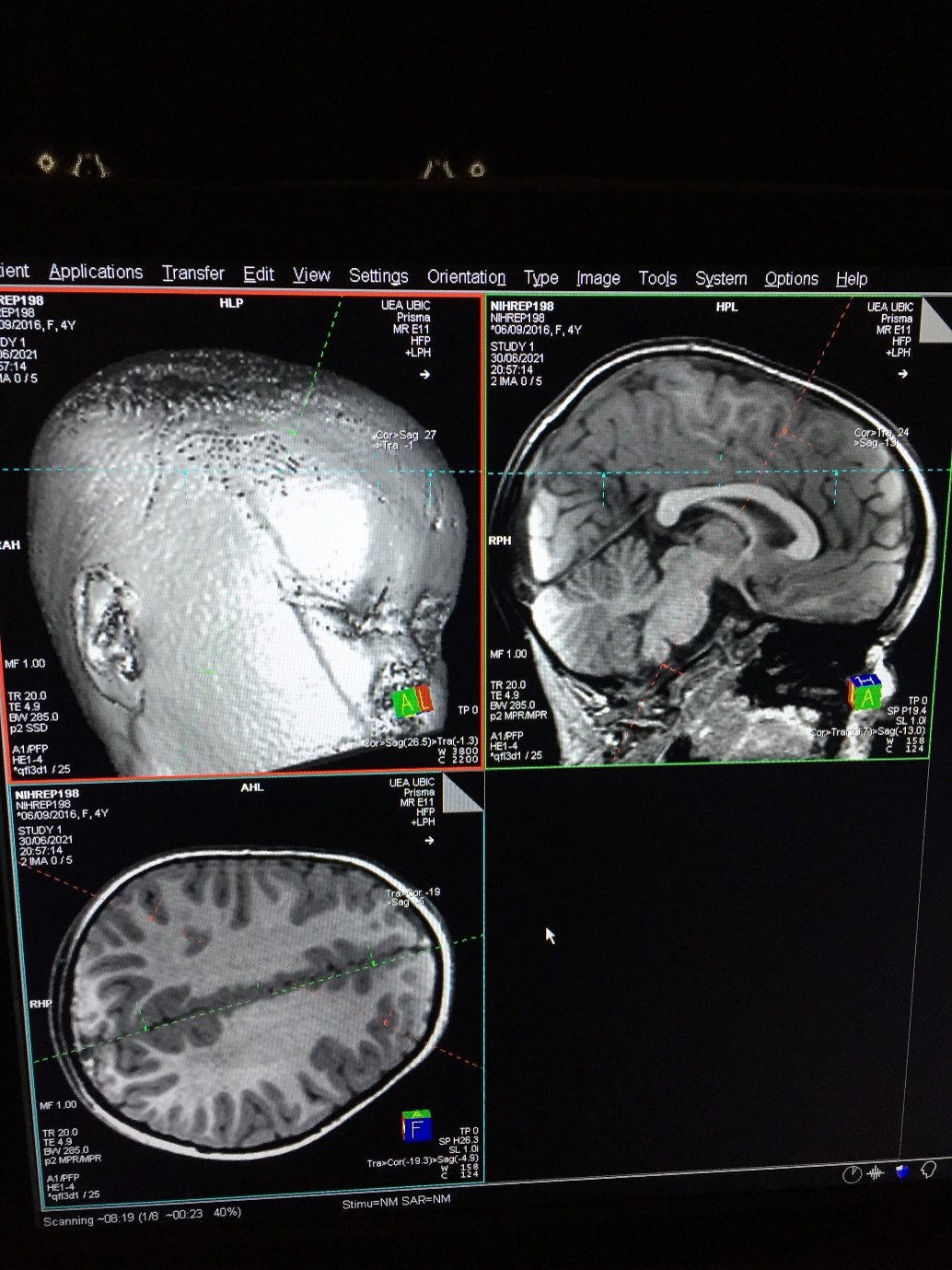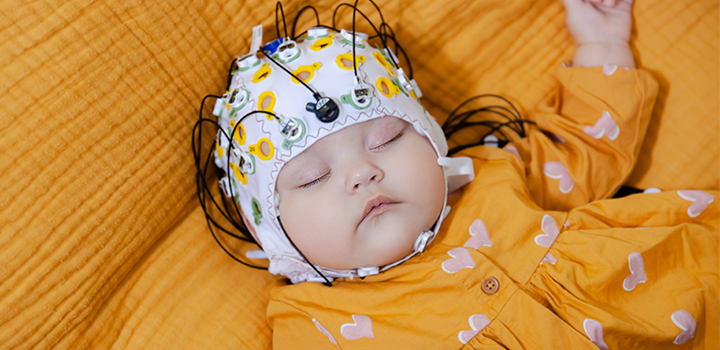How talking to toddlers boosts early brain development
By: Communications

Talking to toddlers helps shape their developing brain, according to new research from the University of East Anglia.
Researchers captured thousands of hours of language data from babies and toddlers wearing small recording devices.
They also carried out MRI scans to study the structure of their developing brains, looking in particular at a substance called myelin.

They found that two-and-a-half year olds who heard more speech in their everyday environment had more myelin in language-related areas of their brains.
The team say that this is likely to support more sophisticated language processing.
Lead researcher Prof John Spencer, from UEA’s School of Psychology, said: “We know that children’s brains develop very rapidly in the first two years of life, with brain volume at about 80 per cent that of an adult brain by the age of two.
“Myelin is made up of protein and fatty substances and forms an insulating layer around nerves in the brain. It makes brain signals more efficient.
“Imagine you have a hosepipe with lots of holes in it. Myelin is like wrapping the hosepipe with duct tape – it insulates neural fibres, bringing more of the ‘signal’ from one brain area to the next.
“We wanted to know more about how this substance is involved with early brain development and particularly whether talking to young children boosts myelin production.”
The team studied data from 163 babies and toddlers, who wore small recording devices for up to 16 hours per day across three days.
These devices captured 6,208 hours of language data in total – including speech from adults, conversational turns and words spoken by the children themselves.
To measure brain structure, the researchers waited until the infants fell asleep and then carefully placed them in an MRI scanner to measure brain myelin while the child slept.
Prof Spencer said: “What we found is that the toddlers who heard more speech in their everyday environment, also had more myelin, which is likely to support more sophisticated language processing.
“In other words - talking to your kids is very important in early development as it helps to shape the brain.”
The study is one of the first to show that language input is associated with brain structure early in development.
Prof Spencer said: “Prior work showed a similar association in four to six-year-olds, but our findings push this association much earlier in development. Indeed, we even found associations between language input and brain structure in six-month-old infants.
“At that age, it looks like language input might help delay myelination, possibly facilitating brain growth in language-related brain areas.
“Although there is still much more to learn about these processes, the message to caregivers is clear - talk to your baby, your toddler, your child. Not only are they listening, but your language input is literally shaping their brains.”
This research was led by the University of East Anglia in collaboration with Durham University, the University of Cambridge, the University of Iowa (US), Brown University (US), Leiden University Medical Centre (Germany) and Concordia University (Canada).
‘Language exposure and brain myelination in early development’ is published in the Journal of Neuroscience.
Related Articles

Children’s development set back years by Covid lockdowns, study reveals
The Covid pandemic disrupted children’s ability to self-regulate - according to new research from the University of East Anglia (UEA).
Read more
Science reveals why you can’t resist a snack – even when you’re full
Research from the University of East Anglia (UEA) may finally explain why we still reach for the biscuit tin, even when we’re full.
Read more
When “quiet” isn’t quiet enough: how shallow sleep in infants may relate to autism
Babies with an increased likelihood of autism may struggle to settle into deep, restorative sleep, according to a new study from the University of East Anglia (UEA).
Read more